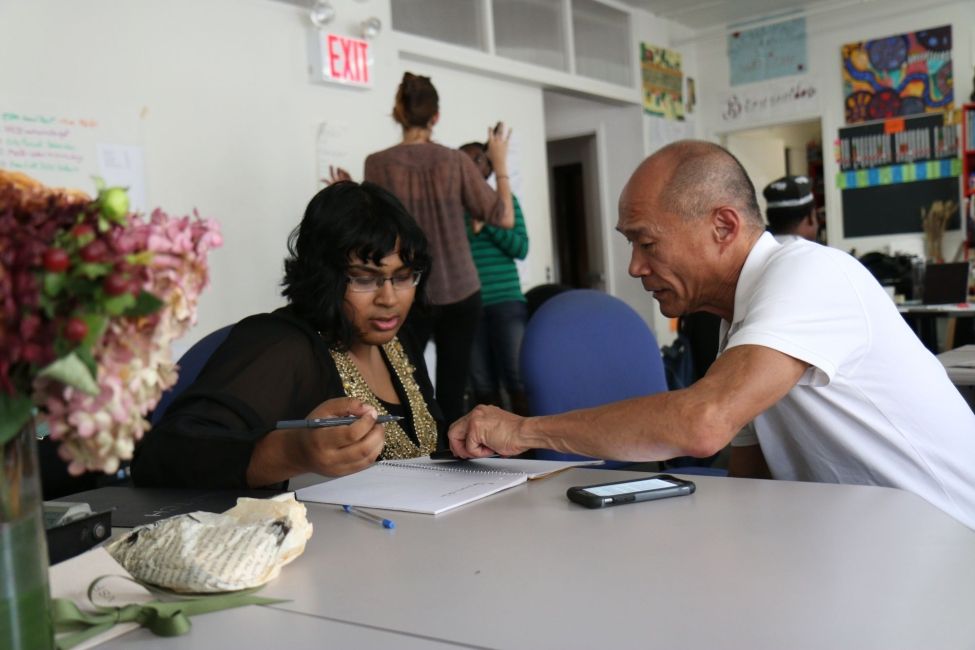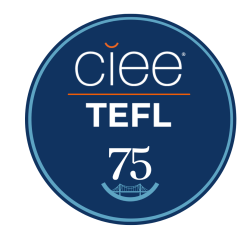How to Build Rapport in the TEFL Classroom
What exactly is rapport?
According to the Oxford Dictionary, it is “a close and harmonious relationship in which the people or groups concerned understand each other's feelings or ideas and communicate well”.
Building classroom rapport is the most important thing a teacher can do beyond his/her initial training in subject matter and pedagogy. One of the most effective behaviors for language learning is linguistic risk-taking. Learners need to trust their teachers and classmates in order to take risks. Trust grows out of rapport.
So, how do we do it? I’m sure many of you have your own techniques, which I’d love to read about in the comments. Here are some steps that I take in my classes and things I appreciate as a learner.
Learning students’ names
My goal is to learn everyone’s preferred name and its accurate pronunciation by the third class meeting. If a name is hard for me to pronounce, I ask the student to be patient and help me learn it. It’s a nice switch for the student to become the teacher and to see the teacher struggling a little (or sometimes a lot!). Names are the outward representation of who we are and should be treated with respect. A student once asked me if she had to choose a new English name because there was another “Jenny” in our class. The last time that had happened to her, her teacher told her to choose a new English name for the semester. Come on! I told her I would call her whatever name she felt most comfortable with. She looked relieved and happy.
Sharing personal information
This requires good judgment, of course, and may also depend on your teaching context, but there is always something to safely and comfortably share. I use examples and stories from my own life during lessons, including my own experiences learning languages and living abroad. My students are used to hearing about my husband, our three cats, our travels, and the eclectic restaurants I’m continually checking out. I often ask my students to share personal information as a way to personalize the learning experience and keep class interesting. The least I can do is open up, as well.
Asking for personal information also requires good judgment. I never want to pressure students to share something they’d rather not, but most students enjoy learning about each other and relating classroom activities to their own lives, such as their jobs, majors, and leisure activities. I give students specific language to use if they don’t want to answer (e.g. "I'd rather not talk about my family right now, but I could tell you about some of my friends instead."). This is important sociolinguistic information, anyway. I emphasize that they are never obligated to talk about a personal topic.
Personalizing learning
It’s easy to view a class as a homogeneous group, so I seek out opportunities to connect with students as individuals. Sometimes I surprise a student by forwarding an article related to his/her hobby or suggesting a local place to practice a sport s/he enjoys.
Getting to know students as individuals helps me see what kind of learners they are and helps me choose materials that appeal to them. I can even refer to students during lessons. For example, if I’m teaching the difference between simple present tense and present perfect I could write on the board: Jin enjoys computer games. Jin has enjoyed computer games since she was a child. If everyone knows these statements are true about Jin, it adds a little fun into the grammar lesson.
I also personalize tests and worksheets. It takes a little extra time, but I think it’s worth it. I once had a Libyan student while Libya was appearing in the news in a very negative light. On one section of an exam, I used a piece of information about the country of origin of each student in the class. I mentioned the lovely beaches in Libya (I Googled to find out some positive things about the country). After the exam, the Libyan student asked how I knew about his country’s beautiful beaches. He was touched that I had taken the time to learn about it and expressed his wish that one day I could visit to see for myself.
Respecting the learners’ prior knowledge
I am especially careful with review activities or topics that I know my students have studied before. I often say something like, “I know you learned the past tense long ago, but I’ve noticed that a lot of you are having trouble remembering or knowing exactly when to use it. I’ve brought some practice activities that I think will help.” This way, students don’t feel insulted by “easy” activities, and they have also been primed to focus on the specific topic they need to work on. It only takes a second, but these types of comments seem to go a long way. I also usually ask the class to tell me what they already know about the topic and what they think might be making it difficult for them. Learners want to know that their teachers are in touch with their needs and that we see how much they already know. Some learners believe that if they’ve studied something once, they have “learned” it. It’s my job to teach them about the cyclical process of language learning.
Asking for feedback
I do still get a little nervous to read my students’ feedback, but I force myself to ask for it a few times a semester. It is sometimes as simple as asking them to write their favorite thing about my class and one thing they hope to learn. I usually also invite any other comments they would like to share, just in case someone has something to get off his/her chest! After I collect feedback, I share the common themes (positive and negative) and my plans to address these. I want my students to know that I’m listening.
Now it’s your turn. How do you build rapport in your classroom? What did some of your favorite teachers do? What irks you as a learner?

